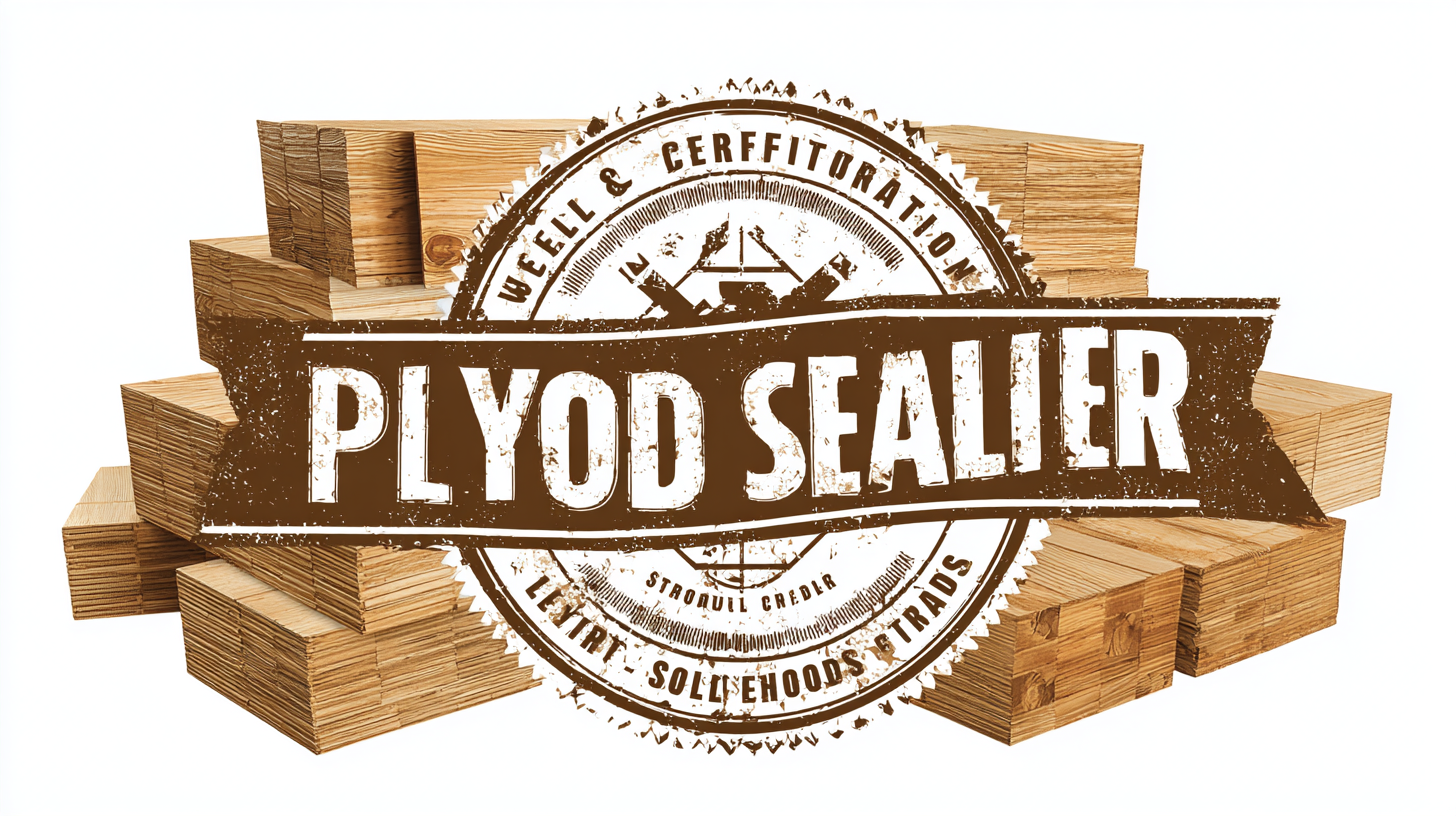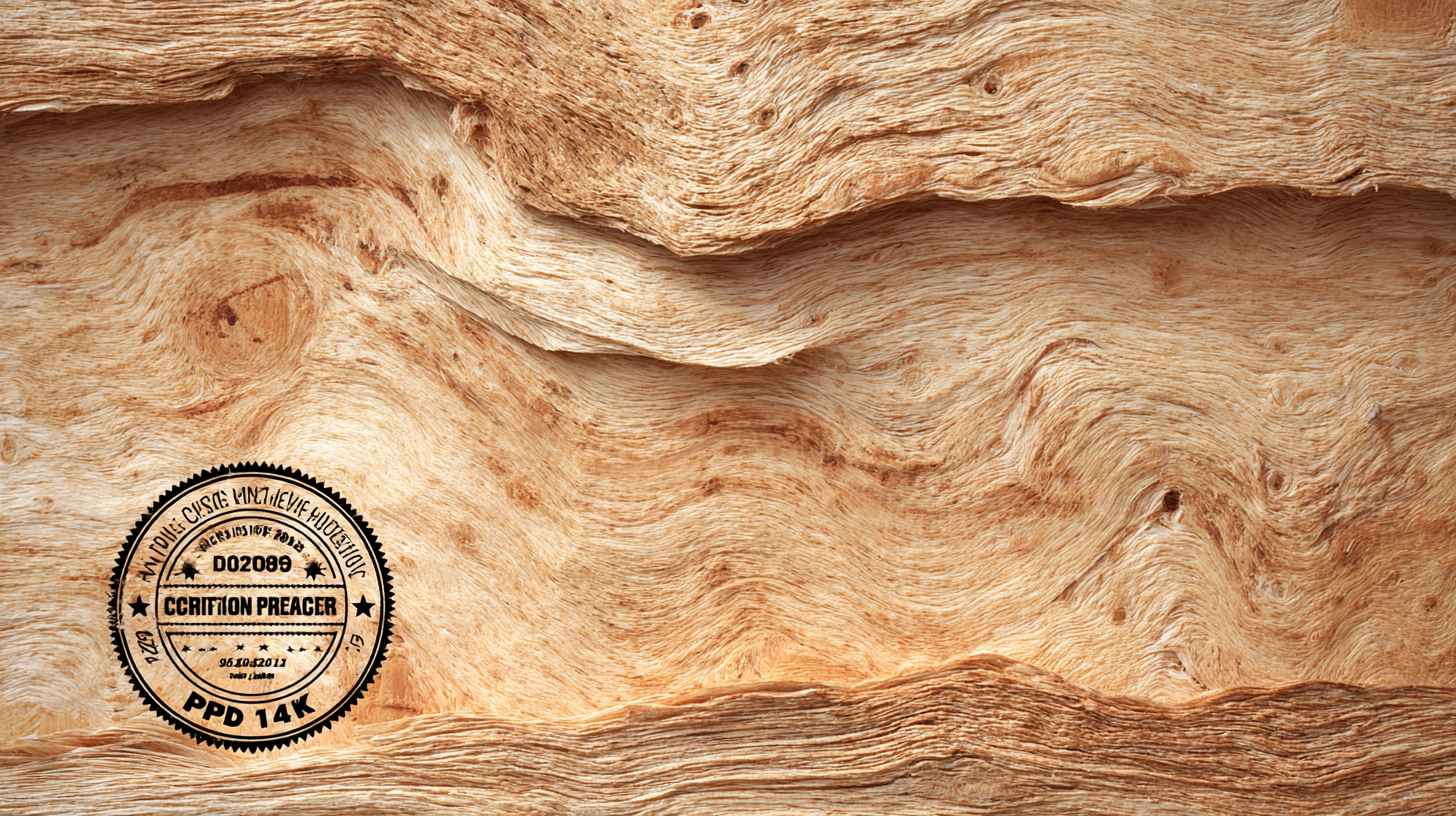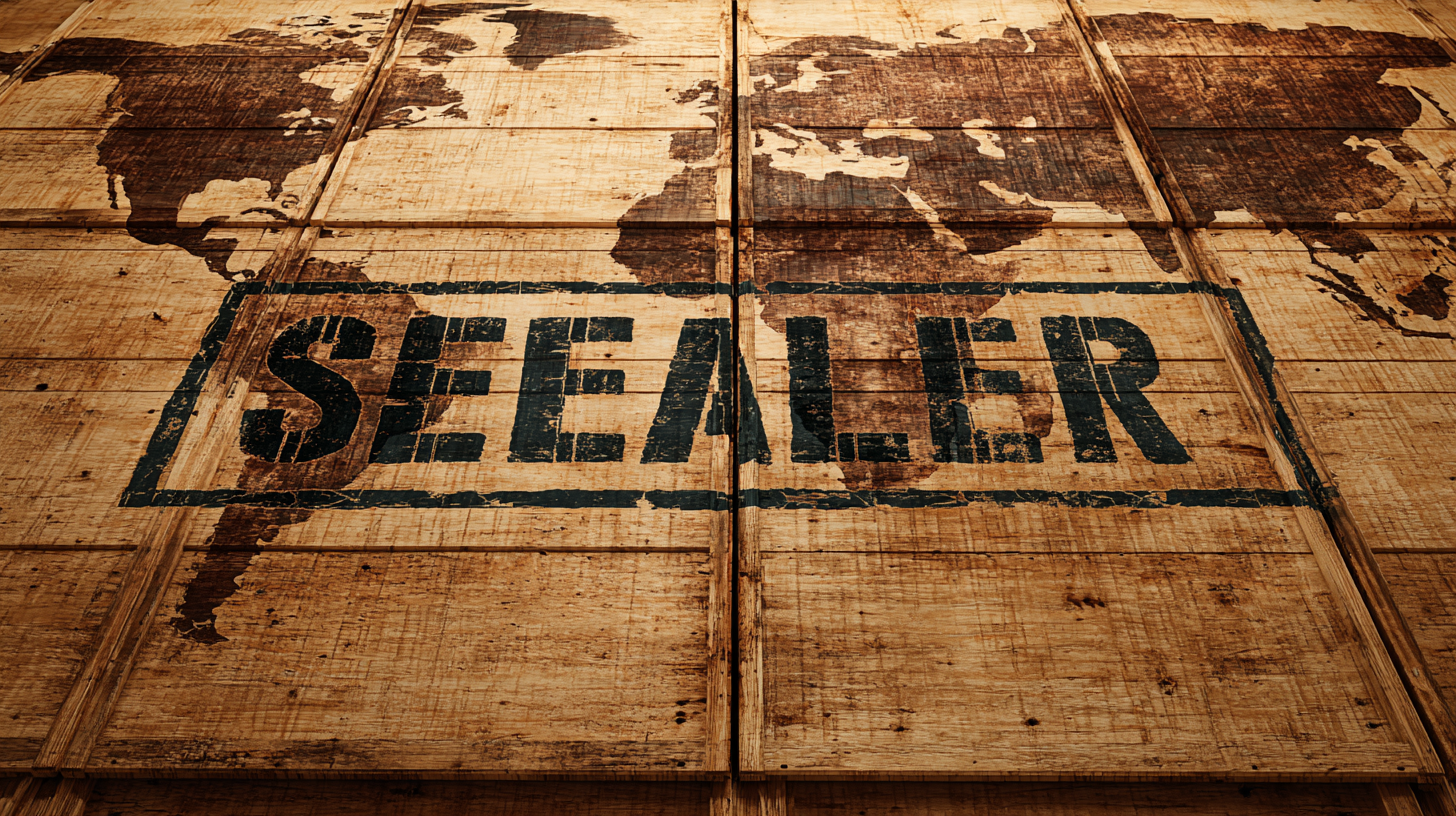The global plywood sealer market is experiencing significant growth, driven by increasing demand for durable and eco-friendly wood treatments.
According to a recent report by Market Research Future, the global wood coatings market, which includes plywood sealers, is expected to reach
USD 10.1 billion by 2027, growing at a CAGR of 5.4% from 2020. This surge can be attributed to the booming construction industry and
rising consumer preferences for sustainable building materials.

However, navigating the complexities of export certification for plywood sealers is crucial for manufacturers looking to access international markets. Understanding the varying regulations and standards across different regions can help ensure compliance and facilitate smoother trade operations. This blog will provide a comprehensive overview of the types of export certifications required for plywood sealers, aiming to equip producers and exporters with the knowledge needed to successfully navigate the global trade landscape.
The global market for plywood sealers is poised for significant innovation in 2025, driven by advancements in technology and a growing emphasis on sustainability. According to a recent industry report by Grand View Research, the global plywood sealer market is projected to reach USD 2.5 billion by 2025, with a compound annual growth rate (CAGR) of 5.5%. This growth can be attributed to the increasing demand for eco-friendly sealers that offer enhanced durability while minimizing environmental impact. Innovations in formulation, such as the development of water-based sealers and low-VOC (volatile organic compound) products, are leading the change.

As professionals navigate this evolving landscape, there are essential tips to consider. First, stay updated on regulations regarding export certifications and ensure compliance to avoid potential delays. Second, focus on sourcing products with certifications from recognized bodies that highlight their sustainability, especially as consumers become increasingly environmentally conscious. Lastly, leveraging technology, such as e-commerce platforms, can streamline the import-export process and widen your access to innovative plywood sealer solutions.
Investing in high-quality, certified sealers not only guarantees long-lasting protection for plywood products but also aligns businesses with industry trends towards sustainability. The integration of advanced technologies in production will further enhance product performance, establishing a competitive edge in the global trade arena.
Understanding global export certification standards is critical for companies looking to effectively navigate the international plywood sealer market. Certification not only ensures compliance with various regulatory requirements but also boosts trust among potential buyers. In an era where consumers are increasingly aware of product safety and environmental impacts, adherence to standards set by international bodies can significantly enhance a brand's reputation. Companies that prioritize export certification can capitalize on market access and improve their competitive edge.
Export certification processes can be complex and vary significantly from one country to another. Businesses must invest time and resources to familiarize themselves with the specific standards required in target markets. For plywood sealers, this may include compliance with chemical safety regulations, environmental guidelines, and performance benchmarks. Partnering with experienced certification agencies will help manufacturers ensure that their products meet necessary quality and safety standards, facilitating smoother entry into global markets. Implementing robust certification strategies is essential for achieving long-term success in the lucrative world of plywood sealers.
Exporting plywood sealers requires a thorough understanding of compliance standards and certification processes. To help you navigate this complex landscape, here’s a step-by-step guide that outlines the essential phases of achieving export certification for your products.
Firstly, familiarize yourself with the specific regulations set forth by your target market. Each country may have unique requirements determined by local health, safety, and environmental considerations. Researching these guidelines is crucial. **Tip:** Create a checklist of all necessary documents and certifications required by the importing country to ensure all bases are covered.
Next, consider preparing your product for testing by accredited laboratories. This stage not only reinforces your commitment to quality but also fast-tracks the certification process. Make sure to collect all relevant data on material composition and compliance with industry standards. **Tip:** Build relationships with certification bodies early on—this can provide invaluable insights and streamline your export process.
Finally, maintain clear communication with partners and clients throughout the certification journey. Keeping everyone informed mitigates confusion and enhances collaboration. **Tip:** Utilize digital platforms to track progress and share important updates with all stakeholders involved.
| Certification Type | Required Documents | Processing Time | Cost Estimate | Compliance Standards |
|---|---|---|---|---|
| Export Health Certificate | Product Specifications, Quality Tests | 2-4 weeks | $300 - $500 | ISO 9001, ISO 14001 |
| Certificate of Origin | Declaration Form, Export Invoice | 1-2 weeks | $100 - $200 | Local Customs Regulations |
| Fumigation Certificate | Fumigation Report, Treatment Certificate | 3-5 days | $150 - $300 | ISPM 15 |
| Product Safety Certification | Test Results, Safety Standards Compliance | 4-6 weeks | $500 - $1000 | ASTM F2923 |
In recent years, the plywood market has shown robust growth, projected to reach USD 60.31 billion by 2030. This surge can be attributed to evolving market trends and shifting consumer preferences that emphasize sustainability and quality in building materials. As more consumers prioritize eco-friendly options, manufacturers must adapt their products to meet these demands while navigating the complexities of export certification.
Understanding the essentials of Plywood Sealers is crucial for businesses looking to thrive in this dynamic market. To meet rising consumer expectations, consider sourcing sealers that are not only effective but also environmentally friendly. Offering transparent information about the ingredients and sustainability of your products can enhance trust and bolster sales.
Expanding your plywood sealer business internationally requires a strategic approach to ensure compliance with export certification standards. According to a report by Research and Markets, the global wood coatings market is projected to reach USD 15.95 billion by 2025, growing at a CAGR of 5.8%. This growth signifies a robust demand for high-quality plywood sealers, but entering international markets also means navigating various certification processes that can differ significantly from one country to another.
To successfully expand your business, it is imperative to understand the specific requirements set by organizations such as the International Organization for Standardization (ISO) and various national regulatory bodies. For example, the U.S. Environmental Protection Agency (EPA) mandates strict compliance with VOC (Volatile Organic Compounds) emissions regulations for wood sealers. Ensuring your products meet these regulations not only facilitates easier entry into markets like the EU and North America but also enhances brand credibility. Engaging with industry consultants and leveraging certification programs can streamline this process, allowing businesses to focus on scaling operations while remaining compliant with international norms.

